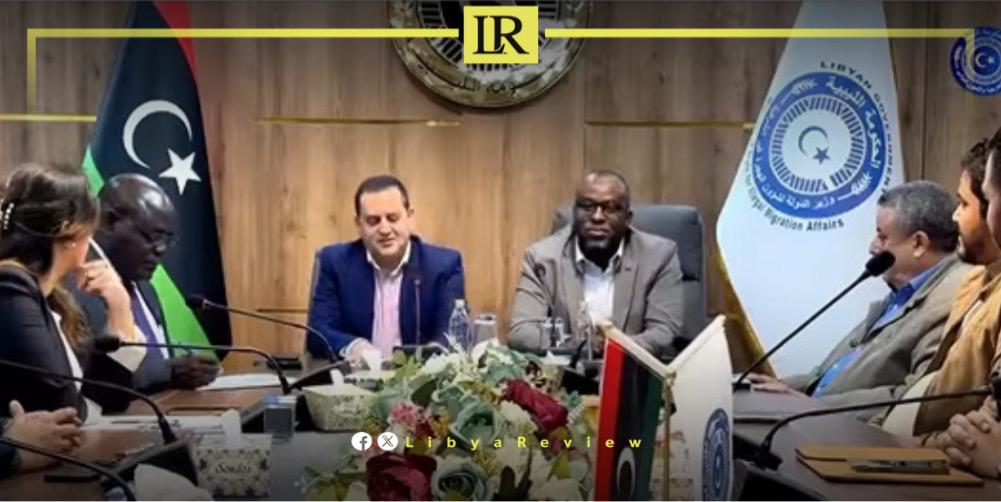The Libyan Government-designate has shed light on the first preparatory meeting’s outcomes for the forthcoming African-European Conference on Migration. Set to take place at the end of May in the city of Benghazi, the conference is themed “Sustainable Solutions for Migration” and aims to foster cooperative solutions to the migration challenges facing both continents.
On Sunday, Foreign Minister Abdulhadi Al-Hwaij conducted a joint press conference with the State Minister for Illegal Migration Affairs, Fathi Al-Tubawi. They discussed the strategic decisions made during the first African Conference in Benghazi in January 2024, which led to the agreement to hold an African-European conference on May 25, 2024, with participation from all European countries, including those outside the European Union.
Dr. Al-Hwaij emphasised the importance of a comprehensive approach to migration, highlighting that it is a concern for both African and European nations. “Migration issues affect us all, especially Southern European countries due to our shared Mediterranean proximity. Therefore, the solutions must be collective, involving both continents rather than unilateral European measures,” Al-Hwaij stated.
Praising the success of the initial African Conference, which was hosted and sponsored by the Libyan government, Al-Hwaij conveyed that the upcoming conference would be chaired by the Prime Minister, with the Ministries of Foreign Affairs and Migration as participating members. “We have initiated the national preparatory committee and held our first meeting, dividing tasks among various subcommittees dedicated to organizing the forthcoming conference,” Al-Hwaij added.
State Minister Al-Tubawi outlined the government’s efforts in engaging with international partners, mentioning conferences and meetings held in France, Tangier, and plans for future engagements in Brussels, Spain, and Italy. “With time pressing, we aim to involve around 100 countries, bringing together government officials, parliamentarians, experts, and civil society. Approximately 300 participants from European and African nations, as well as Africans in the diaspora, will contribute their unique perspectives to our African society, sharing insights into the migrants’ concerns on the other shore,” Al-Tubawi explained.
Highlighting Libya’s role as a transit country, not a source or destination for migration, Al-Tubawi stressed the significant challenges Libya faces, more so than other nations. “The Libyan government has taken the initiative to host this pioneering meeting within the African-European framework. Success can only be achieved through the concerted efforts of all parties involved,” he concluded.
The Libyan government’s proactive stance on migration, aiming to facilitate a collaborative dialogue between African and European countries, marks a significant step towards addressing the complex challenges of migration and seeking sustainable, inclusive solutions.


